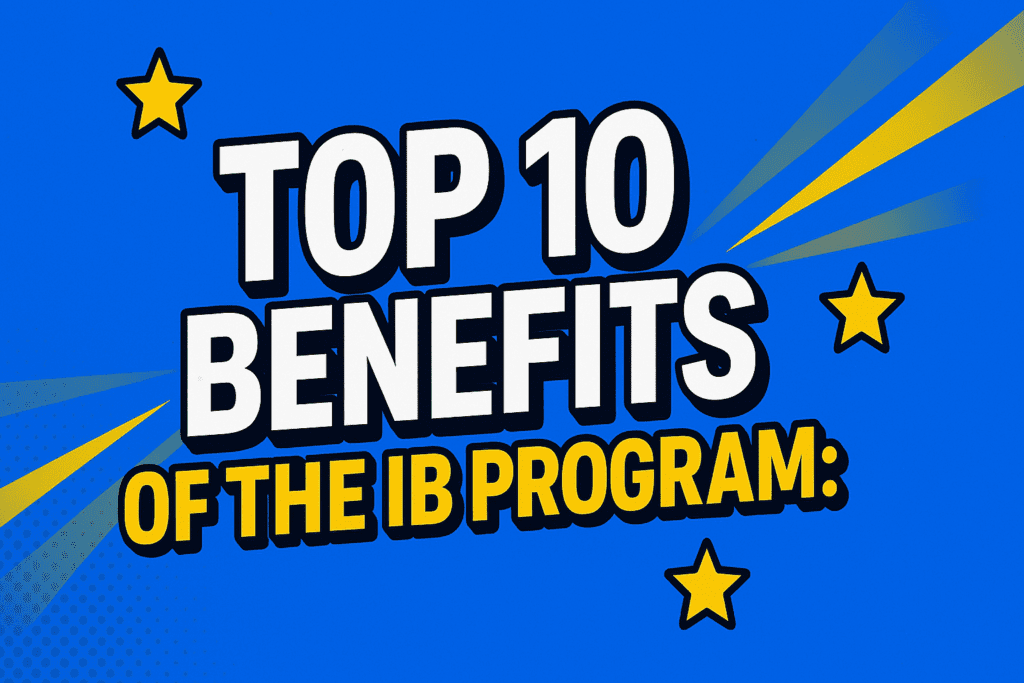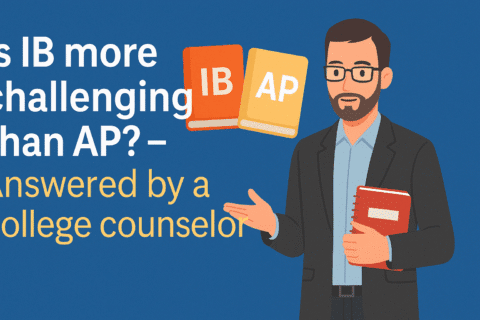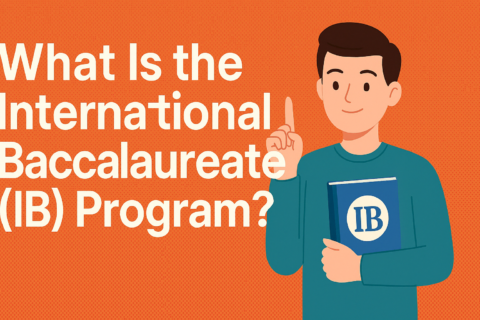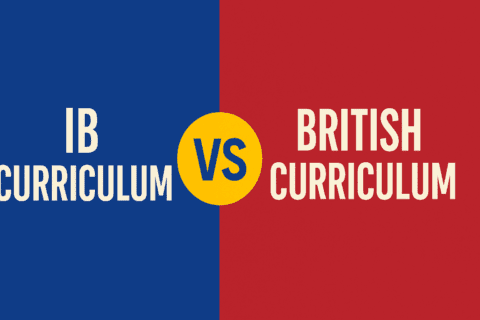Introduction: What Makes the IB Program Stand Out?
In an increasingly interconnected world, academic excellence alone is no longer enough. Today’s students need to be adaptable, globally aware, and intellectually curious.
The International Baccalaureate (IB) Programme—designed for students aged 16–19—offers just that. Delivered in over 5,600 schools across 160+ countries, the IB Diploma Programme (IBDP) is more than a curriculum; it’s a launchpad for future-ready learners.
If you’re a parent exploring the best educational pathway for your child—or a student considering a competitive edge for university—this blog will walk you through the top 10 benefits of the IB program and help you understand why the IB is one of the most respected curriculums worldwide.
What Is the IB Programme?
The IB curriculum is an internationally recognized framework that spans from Primary Years (PYP) to Middle Years (MYP) and finally to the Diploma Programme (DP).
The IB Diploma Programme (IBDP) focuses on:
Academic depth and breadth (students choose 6 subjects from various disciplines)
Holistic development through 3 core elements:
Theory of Knowledge (TOK) – critical thinking about knowledge
Extended Essay (EE) – independent research project
Creativity, Activity, Service (CAS) – community engagement and personal growth
This structure nurtures inquisitive, balanced, and principled learners, making the IB an ideal curriculum for those preparing for university and beyond.
Top 10 Benefits of the IB Program
1. Global Recognition by Top Universities
The IB is not just respected—it’s preferred by top universities in the US, UK, Canada, Australia, and across Europe. Admissions teams appreciate the rigor, well-rounded curriculum, and global perspective IB students bring to the table.
📌 Did you know? Many universities offer advanced credit or placement for high IB scores, especially in the US and Canada.
2. Strong Preparation for University-Level Work
Students in IB develop exceptional skills in:
Academic writing
Research
Time management
By the time they reach university, they’re already familiar with the demands of essay writing, source evaluation, and project deadlines.
3. Emphasis on Critical Thinking and Inquiry
The Theory of Knowledge (TOK) course challenges students to question the nature of knowledge itself—how we know what we know.
This deep level of inquiry builds intellectual courage and independent thought, equipping students for academic debates and real-world problem-solving.
4. Well-Rounded Academic Development
In contrast to narrow subject specializations, IB students study:
One subject from each of 6 groups: Language, Literature, Individuals & Societies, Sciences, Mathematics, and the Arts.
Plus, the TOK, EE, and CAS core components.
This balanced academic profile develops both STEM and humanities fluency—rare in other programs.
5. Encourages Independent Learning and Research
The Extended Essay (EE) is a 4,000-word research project, usually on a subject of the student’s choice. It replicates the kind of academic research students will later face in university.
This develops:
Self-discipline
Critical analysis
Writing and referencing skills
6. Builds Global Citizenship and Intercultural Understanding
The IB’s mission is rooted in international-mindedness. Students are encouraged to:
Learn foreign languages
Understand global issues
Embrace diverse perspectives
They don’t just study the world—they’re prepared to impact it.
7. Develops Time Management and Organizational Skills
Balancing six subjects, plus the demands of CAS, EE, and TOK, teaches students:
How to prioritize
How to meet deadlines
How to stay organized
These are life skills that extend far beyond school and into professional success.
8. Promotes Community Engagement through CAS
Through Creativity, Activity, and Service, students volunteer, lead projects, engage in the arts, and stay active.
This isn’t just a checkbox—it’s a journey that:
Builds character
Enhances empathy
Promotes civic responsibility
9. Prepares Students for Any University System
Whether applying through UCAS in the UK, Common App in the US, or Ontario’s OUAC in Canada, the IB fits seamlessly into all major systems.
🎓 IB students often outperform peers in first-year university, thanks to their broad skillset and academic maturity.
10. Builds Academic and Personal Confidence
By the end of the IBDP, students are more than just ready for college—they’re:
Self-aware
Articulate
Globally connected
The program cultivates resilience, grit, and a strong sense of purpose.
Is the IB Programme Right for Every Student?
✅ Great fit for:
Motivated, curious learners
Students aiming for top universities
Those who enjoy independent learning and research
⚠️ Considerations:
The program is rigorous and time-intensive
Students should have strong time management and emotional resilience
💡 Alternatives: If IB doesn’t align with your child’s learning style, you might explore:
A-Levels (UK)
Advanced Placement (AP)
Cambridge IGCSE/AS-Level
Testimonials and Outcomes
🎓 “IB graduates are better prepared for the academic rigors of college. They adapt quickly and perform strongly in their first year.”
– Admissions Officer, University of Toronto
📊 90% of IB students enroll in university directly after high school, and over 70% attend top-tier institutions.
(Source: IBO.org)
Final Thoughts: Why IB Is a Future-Ready Curriculum
The International Baccalaureate isn’t just an academic program—it’s a mindset. It builds students who are:
Intellectually curious
Globally aware
Ready for the world ahead
Whether your child dreams of studying at Oxford, launching a start-up, or making a difference in their community, the IB program lays the foundation for lifelong success.
FAQs About the IB Program
What are the top benefits of the IB program?
The IB offers global recognition, university readiness, critical thinking, community service, and holistic development.
Do IB students do better in university?
Yes. Studies show IB graduates perform better in their first year and graduate at higher rates than non-IB peers.
Is IB better than A-Levels or AP?
It depends on the student. IB is broader and more holistic, while A-Levels and AP may offer more specialization.
How is IB different from other curricula?
The IB includes core components like TOK, EE, and CAS that foster well-rounded development—not just academics.
Is IB stressful or too difficult?
IB is rigorous, but with proper support and time management, many students thrive in the program.




